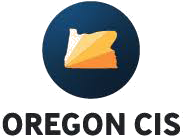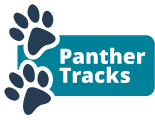Get experience
You will need more than your degree or certificate to get a job after graduation. You’ll need a resume that shows work experience, and you’ll need people to be your references. As soon as you’ve chosen a career, start getting experience.
1. What will you need?
First, figure out what you need on your resume. To get hired, your resume needs two things beyond academic accomplishments: skills and experience.
- Skills = things you know how to do
- Experience = things you have done
Check job postings
To find out what skills and experience you need, look at current job openings.
- Make a list of companies where you would like to work. This list is called your preferred employer list. You can keep a copy and add to it often when you discover new options. You can even use this list when you search for jobs after you graduate! Here’s an example spreadsheet you can use: preferred employer template.
- Look at job openings with these companies, and write down:
- What skills are they asking for?
- What experience do they want to see?
2. Get the skills
To get experience in education and leadership, I volunteered to do presentations as a teaching assistant in a career class. Kaitlin, future Nursing instructor
Now choose activities that target the skills and experience you researched in the last step.
There are many ways you can demonstrate skills and experience to future employers. Here are the most common activities:
- Student Jobs
- Internships
- Part-time jobs
- Work-study
- Volunteer work (aka Community-based learning)
- Student clubs and government
- Class projects focused on a special topic
- Job shadowing
- Jobs for international students
3. Make connections
The employers, mentors, teachers, and co-workers you meet while you are getting experience become your professional network. Your professional network will become one of your most important assets in getting a job. Think about it – when you want to find a babysitter, car mechanic, or teacher, you ask your friends who they can recommend. This is an example of networking. Almost 20% of new hires are made through personal referral – more than any other source. Get your professional network going so someone will recommend you!
Making contact
To make connections, you’ll reach out to professionals, instructors, and people in the community. For many people, this is the hardest part! Don’t worry, though – it will get easier as you build confidence in your professional skills. Being prepared will make it easier to reach out to strangers. Prepare yourself by doing three things:
- Create a starter resume. Don’t worry if it’s short. You’re just getting started! Use this template to create a simple, student resume: basic resume template.
- Practice introducing yourself. Memorize a brief summary of your goals and experience.
- Research basic etiquette in your industry or career field. These conversations are a great way to learn about the skills and experience you’ll need. Questions to ask:
- “What are the current skills in this industry?”
- “What would make me competitive and put me ahead of the crowd?”
Keep track of experience
 Use the “Career Profile (Resume Creator)” tool in Oregon CIS to keep track of all your job-related information. This becomes the foundation for your professional resume. Your future self is going to love you for this!
Use the “Career Profile (Resume Creator)” tool in Oregon CIS to keep track of all your job-related information. This becomes the foundation for your professional resume. Your future self is going to love you for this!
For each activity, write down the following:
- Dates of project
- Who you worked with and their contact information
- Resume words that describe your duties and contributions
- Make a special note of where you were responsible for something
- Write down any numbers, data, and hard facts that you can think of – you won’t remember these a few years from now!
You’re done with this step when…
- You know what internships (or other activities) you plan on pursuing, and what skills and experience you will get from them.
- You’ve developed at least three professional relationships.
- You have a resume and online profile that you update with your accomplishments.

